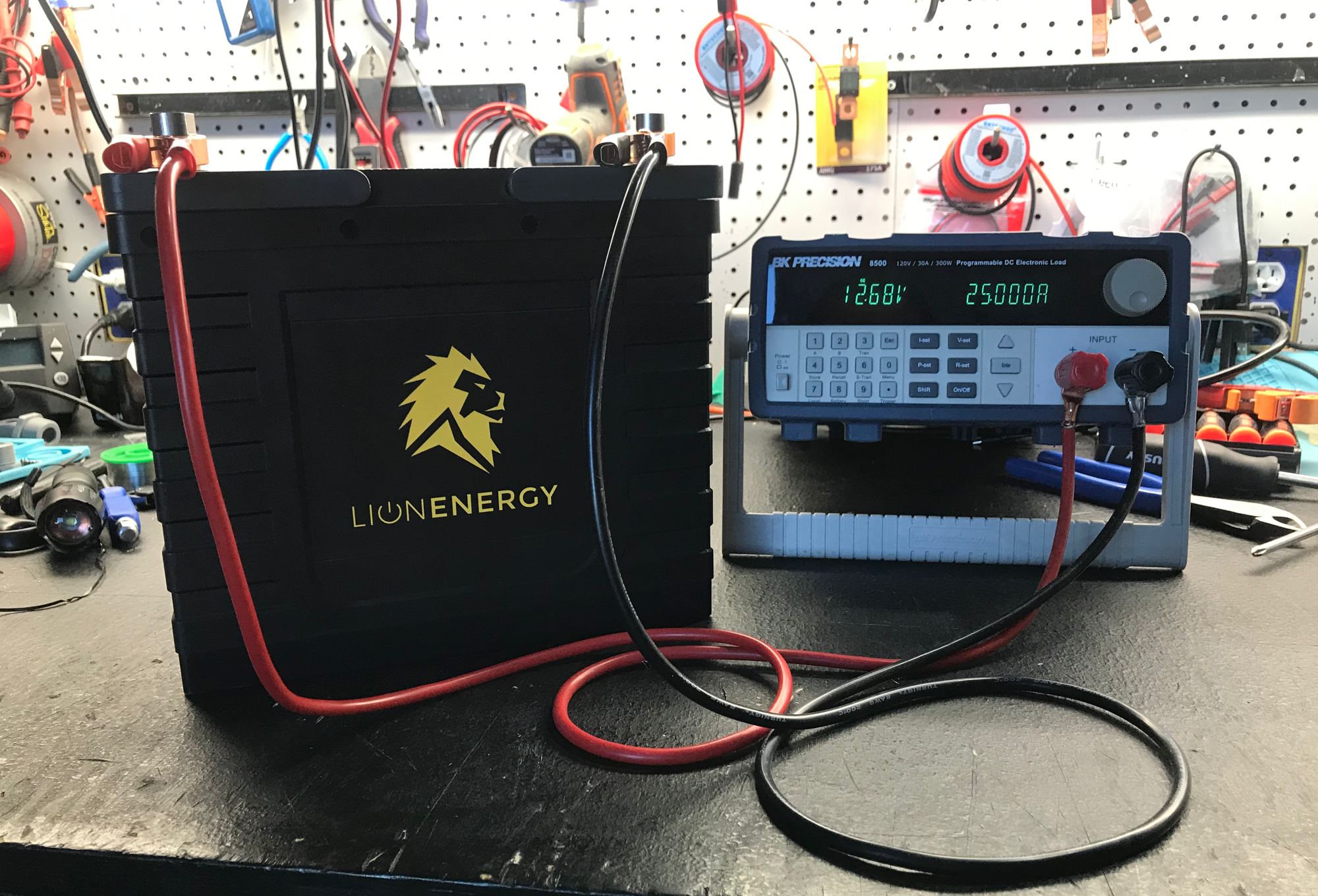I haven't researched lithium batteries yet because the price was too high for me to justify. So I'll say up front, I have no idea how the Lion Energy batteries compare to others, I just saw these on sale today at Costco and checked out the specs. They look pretty good on paper:

 lionenergy.com
lionenergy.com

 lionenergy.com
lionenergy.com
You can download the UT1300 user manual from Lion Energy's site.
A thread here mentioned the following YouTube test of the previous model, the UT1200. The results were disappointing. Tests of two batteries showed that each supplied about 1,000 watts -- not the 1,200 watts advertised:
The *actual* real-world capacity of the UT1300 is something that I would want to clarify before dropping $1,500 on a pair of these.
The fact that Lion apparently "misled" customers about the capacity of the UT1200 concerns me.
In any case, I thought I'd mention the sale, FWIW. If anyone has any input regarding better options, etc, I'm all ears.

Lion Safari UT 1300 - Lion Energy
Lion Energy is offering a limited lifetime warranty on the 12V, 105Ah Lithium Iron Phosphate Lion Safari 1300 battery. This will be the last battery you'll ever buy. Order online today!

Making Sense of Battery Ratings
There is a variety of information out there on battery specification or "tech talk." Sometimes it's difficult to understand it all or tell what is accurate because the information often is not consistent. We'd like to provide some guidelines and data that is clear on typical batteries used in...
You can download the UT1300 user manual from Lion Energy's site.
A thread here mentioned the following YouTube test of the previous model, the UT1200. The results were disappointing. Tests of two batteries showed that each supplied about 1,000 watts -- not the 1,200 watts advertised:
The *actual* real-world capacity of the UT1300 is something that I would want to clarify before dropping $1,500 on a pair of these.
The fact that Lion apparently "misled" customers about the capacity of the UT1200 concerns me.
In any case, I thought I'd mention the sale, FWIW. If anyone has any input regarding better options, etc, I'm all ears.

